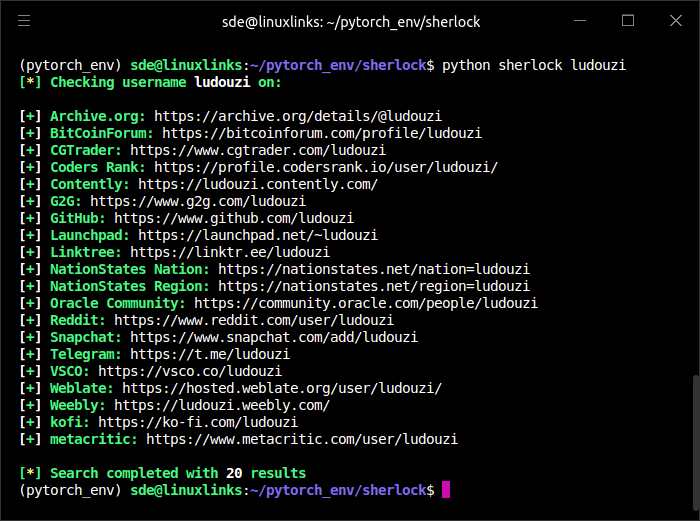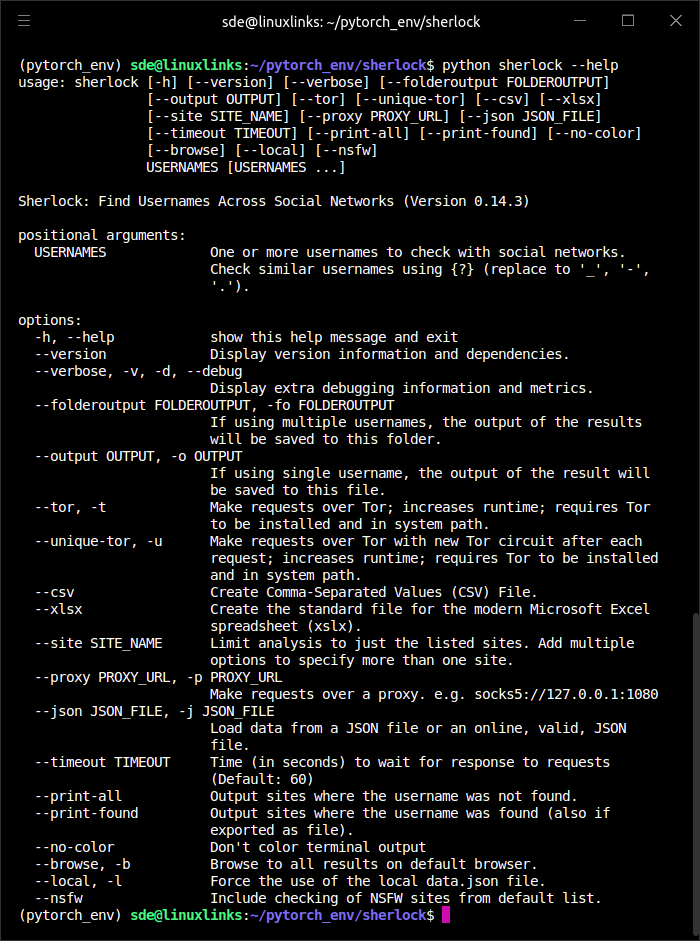Last Updated on June 28, 2024
In Operation
The syntax is simple: python sherlock username.
If we want to find the social media accounts of say an individual called ludouzi, we’d issue the command:
$ python sherlock ludouzi
Here’s the output from the program.

The user ludouzi is the developer of fooyin, a music player that our Luke Baker thinks is the music player for the future.
The program produces 20 matches although for this example many of the matches are actually false positives. For example, currently cgtrader is returning a false positive for every username.
There are various options available.

A few of the interesting options are the ability to use tor, and the option to create a CSV of the results which can then be imported into other software for more interrogation.
Summary
sherlock searches a wide range of social media accounts. At the time of writing, more than 300 social media services are supported.
The project has amassed a stonking 51K GitHub stars. While GitHub stars are a sign of a project’s popularity, the number is not a reliable indicator of quality. We’re not convinced the huge number of stars reflects the usefulness of the implementation.
One of the main problems with Sherlock is the issue of false positives. Many social media sites have had to removed from Sherlock because the software isn’t able to establish whether a username actually exists or not. And its a constant battle to ensure the special media services it supports provide accurate results. Adding more websites and social networks just increases the burden for the project.
Website: sherlockproject.xyz
Support: GitHub Code Repository
Developer: Sherlock Project
License: MIT License
sherlock is written in Python. Learn Python with our recommended free books and free tutorials.
Pages in this article:
Page 1 – Introduction and Installation
Page 2 – In Operation and Summary
